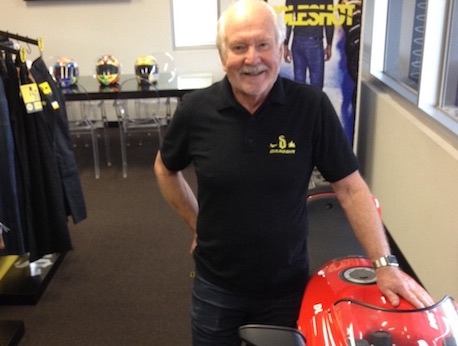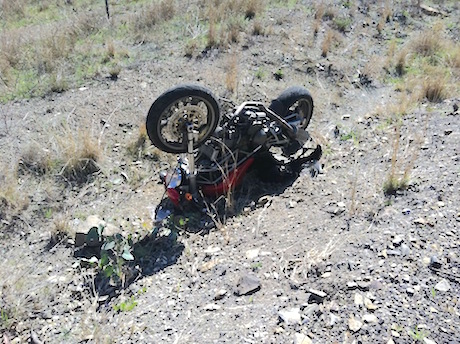Do hospital staff have a prejudice against motorcycle riders because they are seen as careless risk-takers clogging up the health system and does it affect their level of care?
It’s a question worth asking, according to a university professor and a motorcycle clothing supplier.
Deakin University’s Dr Chris Hurren, who has been developing new industry standards for motorcycle clothing safety labelling, says he has heard of several incidences of hospital discrimination towards riders.
His remarks follow a crash involving Draggin Jeans CEO Grant Mackintosh and a cyclist in the Adelaide Hills in June 2016.

Grant says he was badly injured and was not aware of any discrimination, but says his wife, Julia, a clinical sister, believed he was treated differently.
“Julia mentioned to me that because I came in as a motorcyclist I was treated quite differently from the guy on the pushbike,” he says.
“It had on my admission report that I was motorcyclist who hit a cyclist.”
(The word “hit” seems to suggest blame on the motorcyclist. Young journalists are taught to use the word “collide” if both parties are moving as it does not imply blame.)
“I got the police report form the accident recently and it said I wasn’t speeding, had no alcohol or drugs in my system and that the cyclist was on wrong side of the road,” Grant says.
Yet he believes those simple words on his admission report may have led to a prejudice against him.
“They (hospital staff) treated Julie and me differently from what they did the cyclist. I think they automatically assume the motorcyclist is always to blame.
“The cyclist and his family were admitted at the same time and he got ushered in and looked after while I was stuck in a room with a screaming kid and not many people very interested in me.”
Recently Grant was talking with Dr Hurren about the new safety labelling standards and was asked if he had experienced any prejudice at hospital.
“I hadn’t really thought about it while I was in hospital as I was more concerned with my condition, but my wife said there was,” Grant says.
“Chris told me it’s not uncommon.”
Dr Hurren agrees that there is the possibility of prejudice against injured motorcycle riders.
“I have had several people mention to me now about discrimination they have received during treatment for a motorcycle accident hence my question to Grant,” he says.
“It is something that I think worth looking into as it would be both uncomfortable for the rider and family in question and could indirectly cause increased health care costs as riders don’t receive the treatment they require in a timely manner.”
He is expecting to start research on the matter, possibly after finalising the safety labelling standards.
MBW hospital experiences
My own experiences after two major motorcycle crashes have been extremely different.
On the first occasion I was admitted to emergency with a broken foot after an off-road motorcycle crash.
My wife apologised profusely about my stupidity and the nurses seemed to take it from there, lecturing me and treating me in an off-hand way.
However, once admitted to the ward, I was treated well.

I had the complete opposite experience after a second and more serious crash.
Perhaps it was the fact that the female emergency ward supervisor was a motorcycle rider and the chief surgeon at the time was also a rider.
Not only did I not experience any negative prejudice, but I struck up long conversations with the doctors about riding.
And when I specifically asked if the staff were sick of the number of injured riders causing them extra work, they said it was not as bad as the number of cyclists they attended.
“At least motorcyclists wear protective clothing” one nurse remarked.


